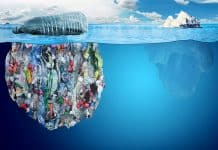https://pamirtimes.net/wp-content/uploads/2014/12/Clean-Energy.jpg
In the world today, there is no time for the environment to change to new conditions presented to it. Forests are being cut down for more houses, the ocean is being filled with garbage, and chemicals are being dispersed into the air. "Given time- time not in years but in millennia- life adjusts, and a balance has been reached. For time is the essential ingredient; but in the modern world there is no time" (Carson, 2011, p.154). Millions of years ago, the Earth was able to take natural pollutants, and was able to balance them. Now, we are seeing synthetic creations and disruptions in natural elements, and the Earth is not able to adapt to them quickly. Since the Earth cannot adapt fast, it is causing damage that cannot be undone. Climate change is one of these issues. We are heating up the world at a faster rate than we ever have, and there has been no solution yet on how to stop this.
https://www.tropical-rainforest-animals.com/image-files/airpollution.jpg
One way the effects of pollution can be reversed is through remediation. "Pollution remediation means stopping and revising damage to environmental systems caused by pollution" (Robertson, 2014, pg.147). One way this is done, is by using organisms, like bacteria and fungi. Some of these organisms eat the pollutants, where as they are deadly to other animals. These organisms are able to eat the pollutants, because they have adapted to do so, to keep the Earth in equilibrium. Without them millions of years ago, the Earth would have been in a worse state than it is now. Although these organisms help in reversing the damage, we need more than that. We need to realize that everything we do as a society, all have some type of negative affect. We need to find sustainable manufacturing practices to limit the amount of byproduct released into the air and water. By doing so, we can start to reverse some damage we have done, and possibly extend the life of many natural resources, plants, and animals.
https://www.conserve-energy-future.com/wp-content/uploads/2017/01/pollution-plastic-iceberg-218x150.jpg
Works Cited
Robertson, M. (2014). Sustainability principles and practice. London: Routledge, Taylor & Francis Group.
Carson, R. (2011). Excerpt from Silent Spring. In University Colloquium: A Sustainable Future (pp.153-160). Acton, MA: XanEdu Publishing



No comments:
Post a Comment